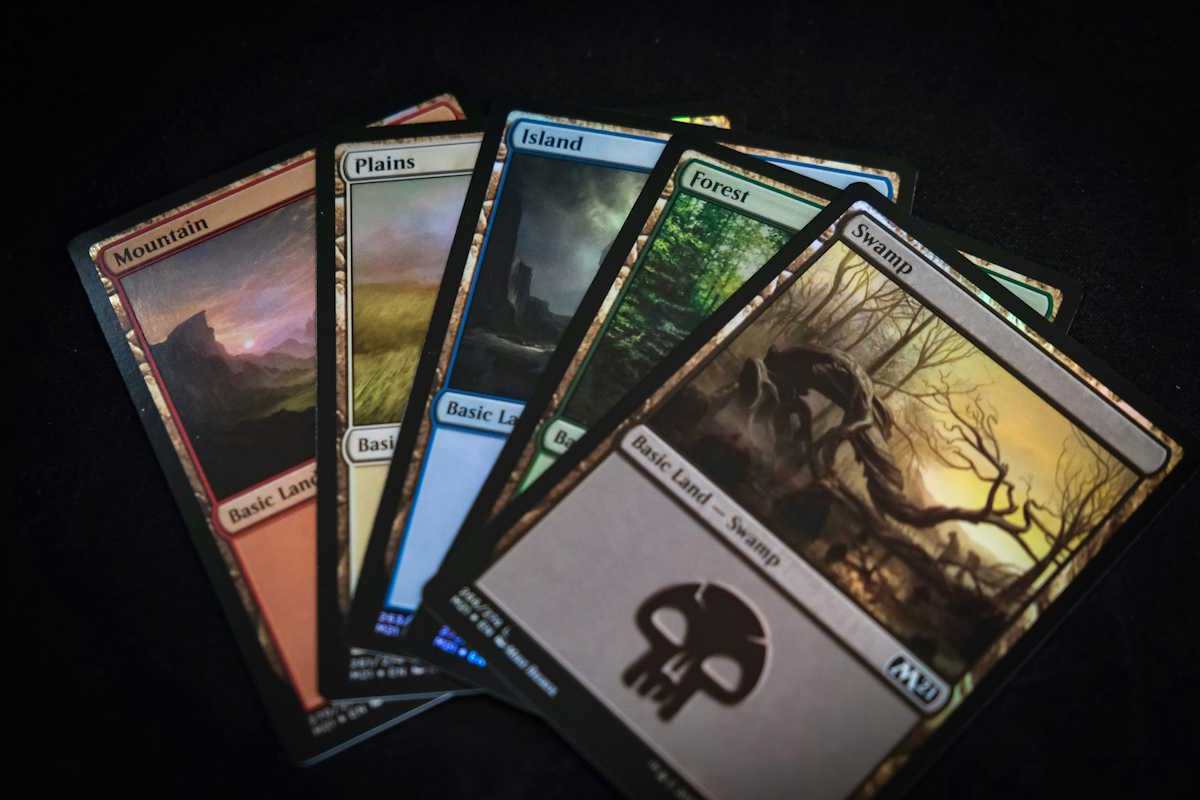Ever been mid-duel, staring at your hand like it betrayed you, while your opponent drops a perfect curve of spells? Magic: The Gathering isn’t supposed to feel like rolling dice in a pub game—but sometimes it does. The truth is, consistently winning isn’t about hoping for the right draws. It’s about understanding the board, anticipating your opponent, and knowing which moves feel like checkmating a chess grandmaster mid-match. In short: luck is for snacks and side quests, not for pro-level planeswalker duels.

Building a Solid Base
Here’s the thing—your deck is your strategy manual. Every card matters because each one plays a part in your master plan. Think of it like crafting the perfect build in an RPG; every choice, every card, has to fit your overall goal. The right deck isn’t just built; it’s strategically designed—every spell, creature, and planeswalker serves a specific purpose. If you want to turn your duels into near-perfect runs, start by thinking beyond flashy combos.
Strategic layering is key, and selecting the right foundation, like carefully chosen MTG commander decks, can make all the difference. Whether you’re building control-heavy setups or going full-on aggressive, choosing a deck that matches your style is like selecting your class before a raid—do you want tank, rogue, or pure damage-per-second chaos?
Pro tip: don’t just focus on legendary creatures. Think about how planeswalkers interact, how removal spells chain together, and when to bait your opponent into overcommitting. A well-timed counter can feel as satisfying as dodging a raid boss ultimate at 1 HP.
Timing is Everything
Every turn is like a scene in a thriller movie. Timing is key: play your cards too early, and they’re easily countered; wait too long, and you lose control of the game’s flow. The most effective players can anticipate their opponents’ next move and react accordingly, turning the duel into a battle of wills.
• Early Turns: Prioritise mana curve and control. Establish board presence without overextending.
• Mid Game: Start setting traps. Use your removal wisely; remember, every spell can double as a bait for misplays.
• Late Game: Endings matter. This is where planeswalker loyalty counters and combos shine. Think cinematic, not chaotic.
Mind Games Matter
If Magic has a secret skill, it’s psychology. Bluffing with tapped lands, feigning weakness, or holding back a key spell can be as potent as the card itself. Opponents overcommit, make risky plays, and suddenly, you’re the one in control. It’s chess disguised as a trading card game.
Remember, the best duelists know when to be predictable and when to break patterns. That tiny pause before casting a lethal spell? That’s not hesitation; it’s suspense. And suspense wins matches.

Iteration and Adaptation
No deck is ever perfect from the start, and the best players know that mastery comes with constant adaptation. The pros aren’t just lucky—they’re always tweaking, refining, and adjusting their decks to stay ahead of different opponents and situations. It’s like solving an ongoing strategy puzzle, where every adjustment is a step closer to outsmarting your opponents and ensuring your deck outlasts the competition.
Think of it like patching a favourite video game—each tweak optimises damage output, utility, and survivability all at once. Pay attention to the cards that consistently underperform, which combos feel clunky or slow, and how your strategy shifts across matchups. Over time, these fine-tuned adjustments turn your deck into an extension of yourself—capable of predicting your opponent’s moves and responding with precision, before they even realise what’s coming.
The Path to Mastery
Magic is strategic mastery, not just about luck. You can’t control the cards you draw, but you can always control how you play them. And that’s where true skill lies: thinking ahead, anticipating moves, and making your deck feel like an extension of your mind. Every duel is a chance to learn, adapt, and pull off plays that feel straight out of an esports highlight reel.